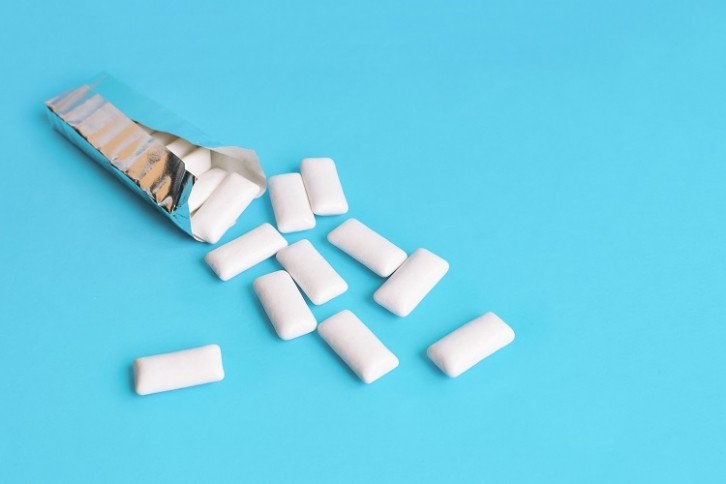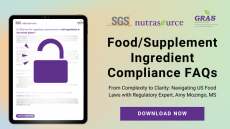Is zero-calorie sweetener xylitol bad for the heart?

Low- and no-calorie sweeteners are popular for one main reason: they do what they say on the tin.
With excessive consumption of free sugars linked to increased risk of overweight and obesity, and of developing non-communicable diseases (NCDs), consumers are keen to avoid the white stuff.
Food manufacturers have long been responding by swapping out sugar for substitutes, be it aspartame, saccharin, stevia, or xylitol. This last sweetener is particularly popular in the chewing gum category since it’s been proven to prevent tooth decay.
But xylitol may not be the panacea food formulators have thought it to be. Fresh research published in the European Heart Journal is linking xylitol consumption to an increased risk of heart attack and stroke.
Is the zero-calorie sweetener that promises so much unsafe for human consumption?
How does xylitol increase risk of heart attack and stroke?
In the world of sweeteners, there are largely two camps: natural and artificial. Xylitol is considered a natural sugar substitute, since it’s made from a natural sugar alcohol found in plants – including some fruits and vegetables.
Which foods contain xylitol?
Sugar substitute xylitol is found in a range of food and non-food products, including sugar-free gums, baked goods, and even toothpaste.
Being zero-calorie, it’s appealing to food formulators and consumers alike. Previous research has also suggested that xylitol can help prevent gum disease and dental decay.
But now new research has come to light which is worrying for all concerned: a large-scale patient analysis, preclinical research models and a clinical intervention study have linked sugar alcohol xylitol with increased risk of cardiovascular events such as heart attack and stroke.
Assessing more than 3,000 patients in Europe and the US, the research team found that one-third of those studied with the highest amount of xylitol in their plasma were more likely to experience a cardiovascular event.
Pre-clinical testing confirmed that xylitol caused platelets to clot and heightened the risk of thrombosis.
Platelet activity was tracked by asking consumers to drink a xylitol-sweetened beverage compared to a glucose-sweetened drink. Every measure of clotting ability significantly increased immediately following ingestion of xylitol but not glucose.
Should consumers throw out xylitol chewing gum and toothpaste?
The study is cause for alarm, but not to the extent that consumers need throw their xylitol-sweetened toothpaste in the bin.
Lead author Stanley Hazen, who heads up Cardiovascular and Metabolic Sciences at Cleveland Clinic’s Lerner Research Institute in the US, suggests consumers should be aware of eating a product containing high-levels of the zero-calorie sweetener, since it could increase the risk of blood clot-related events.
The findings also suggest more research is needed, and urgently. “This study…shows the immediate need for investigating sugar alcohols and artificial sweeteners, especially as the continue to be recommended in combatting conditions like obesity or diabetes,” he said.
The research follows on from a 2023 study linking higher blood levels of another sweetener – erythritol – with increased risk of adverse cardiac events.
Xylitol study limitations exist, so can it be trusted?
Hazen’s team acknowledges its latest study comes with limitations, including that clinical observation studies demonstrate association and not causation.
This point has been picked up by the Calorie Control Council, which represents the low- and reduced-calorie food and beverage industry. “While the authors used multiple methods, it should be noted that the findings are limited in their ability to establish association only,” stressed trade body president Carla Saunders.
Xylitol: the latest sweetener to come under fire over health concerns
Xylitol is far from the only sweetener to have been associated with worrying health effects of late.
Neotame, otherwise known as E 961 and made from aspartame, has been found capable of damaging the human intestine and causing illness. The finding builds on earlier research linking artificial sweeteners saccharin, sucralose, and aspartame to gut damage.
And it doesn’t stop there. Last year, the World Health Organization (WHO) advised against using non-sugar sweeteners to control weight, after researchers were unable to find a link between sweetener use and long-term body fat reduction in either adults or kids.
A couple of months later, the WHO classed aspartame as ‘possibly carcinogenic’ – but safe to consume within daily intake guidelines.
Most recently, tragedy occurred when a girl in Punjab, India, died after eating birthday cake. Her family also fell ill, and testing revealed the cake contained an excessive amount of synthetic sweetener saccharin. Earlier research had linked saccharin consumption with increased body weight.
“Further, one phase of the study included individuals who were already at risk for adverse cardiovascular events. These findings are a disservice to those who rely on alternative sweeteners as a tool to improve their health.”
According to the Council, the study findings are contrary to ‘decades of scientific evidence’ substantiating the sweetener’s safety, which has long been trusted.
“It has proven dental benefits, including preventing plaque build-up and tooth decay, and is naturally occurring in foods such as strawberries, lettuce, and oats.”
Source: European Heart Journal
‘Xylitol is prothrombotic and associated with cardiovascular risk’
Published 6 June 2024
DOI: https://doi.org/10.1093/eurheartj/ehae244
Authors: Marco Witkowski, Ina Nemet, Xinmin S Li, Stanley L Hazen et al.













